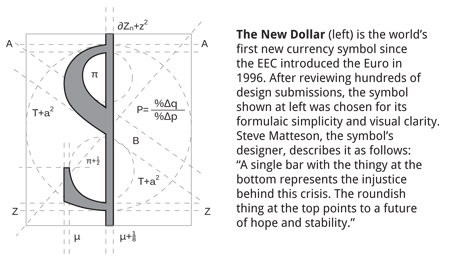the counterfeit coin
“‘If I were writing The Counterfeiters I should begin by showing the counterfeit coin—the little ten-franc piece you were speaking of just now.’
So saying, he pulled out of his pocket a small coin, which he flung on to the table.
‘Just hear how true it rings. Almost the same sound as the real one. One would swear it was gold. I was taken in by it this morning, just as the grocer who passed it on to me had been taken in himself, he told me. It isn’t quite the same weight, I think; but it has the brightness and the sound of a real piece; it is coated with gold, so that, all the same, it is worth a little more than two sous; but it’s made of glass. It’ll wear transparent. No; don’t rub it; you’ll spoil it. One can almost see through it, as it is.’”
—André Gide, The Counterfeiters, translated by Dorothy Bussy, 1927.
For the Love of Vinyl
My thoughts are always the same colour as my clothes
“‘Don’t dress just yet. In the cupboard on the right hand side of the bath, you’ll find a collection of burnouses and haiks and pyjamas. Take anything you like.’
Vincent appeared twenty minutes later dressed in a pistachio-coloured silk jellabah.
‘Oh, wait a minute—wait! Let me arrange you!’ cried Lillian in delight. She pulled out of an oriental chest two wide purple scarves; wound the darker of the two as a sash round Vincent’s waist, and the other as a turban round his head.
‘My thoughts are always the same colour as my clothes,’ she said. (She had put on crimson and silver lamé pyjamas.)”
—André Gide, The Counterfeiters, translated by Dorothy Bussy, 1927.
He wonders whether he would have guessed merely by reading Laura’s letter that her hair was black
“Edouard dozes; insensibly his thoughts take another direction. He wonders whether he would have guessed merely by reading Laura’s letter that her hair was black. He says to himself that novelists, by a too exact description of their characters, hinder the reader’s imagination rather than help it, and that they ought to allow each individual to picture their personages to himself according to his own fancy. He thinks of the novel which he is planning and which is to be like nothing else he has ever written. He is not sure that The Counterfeiters is a good title. He was wrong to have announced it beforehand.”
—André Gide, The Counterfeiters, translated by Dorothy Bussy, 1927.
I can see nothing
“‘I’ve got as far as page thirty without coming across a single colour or a single word that makes a picture. He speaks of a woman and I don’t know whether her dress was red or blue. As far as I’m concerned, if there are no colours, it’s useless, I can see nothing.’ And feeling that the less he was taken in earnest, the more he must exaggerate, he repeated: ‘—absolutely nothing!’”
—André Gide, The Counterfeiters, translated by Dorothy Bussy, 1927.
Basketball Jones
the brilliancy of the room
“Anne saw nothing, thought nothing of the brilliancy of the room. Her happiness was from within. Her eyes were bright, and her cheeks glowed,—but she knew nothing about it. She was thinking only of the last half hour. . . .”
—Jane Austen, Persuasion, 1817.
And I have reflected its colours
“The sea has been breeze-serene sapphire,
And blue-tipped birds have rippled it,
And the sun has smoothed it with quiet fire,
And I have reflected its colours in the peace of my eyes;”
—Dylan Thomas, “Idyll of Unforgetfulness”, The Poems of Dylan Thomas, 1971.
Know the green good
“The country is holy: O bide in that country kind,
Know the green good,
Under the prayer wheeling moon in the rosy wood”
—Dylan Thomas, “In country sleep”, The Poems of Dylan Thomas, 1971.
